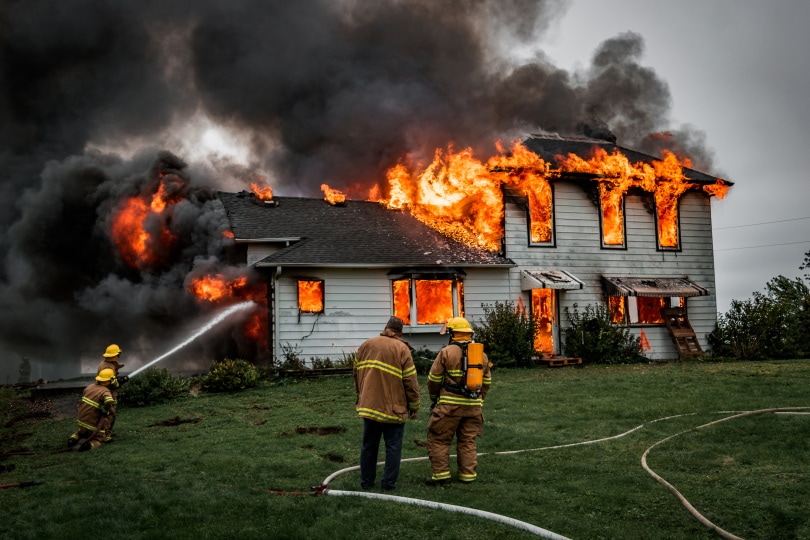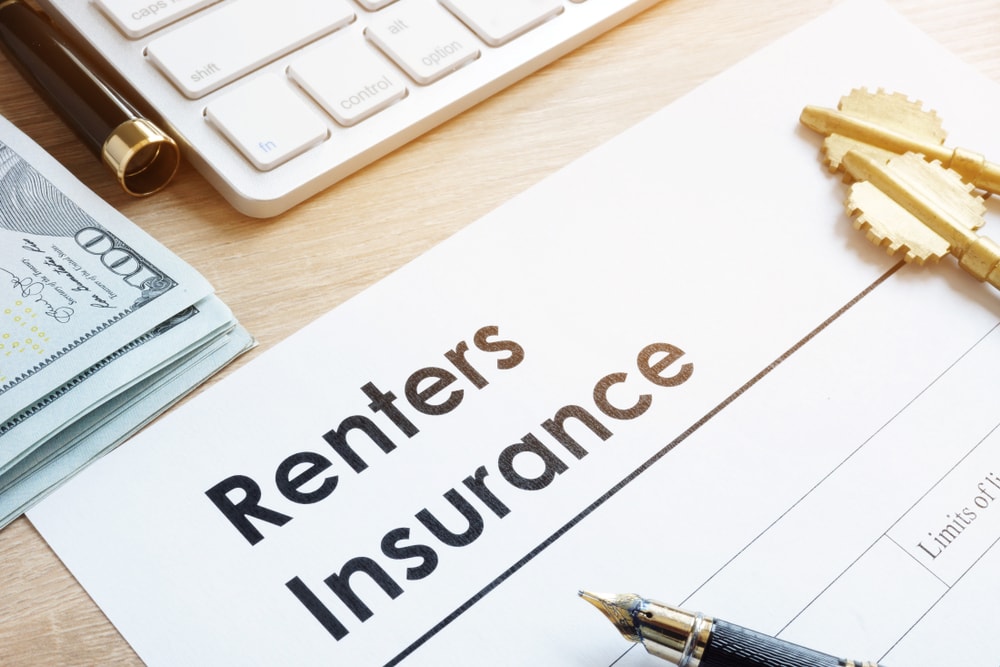Does Renters’ Insurance Cover Fire? Exclusions & Policies Explained
-
Pete Ortiz
- Last updated:

When it comes to protecting your home and everything inside it, renters’ insurance is a great way to make sure you’re covered. But one of the most important questions that people have about renters’ insurance is: does renters insurance cover fire?
Most renters’ insurance policies do include coverage for fire damage—but it’s important to understand what exactly is covered and what’s not. There are several factors that affect whether your policy will cover fire damage. In this guide, we’ll walk you through the ins and outs of renters insurance coverage for fire so that you can be sure your home is protected. Read on to find out more!
What Happens if You Accidentally Set Your Apartment on Fire?
You’re going about your day, cooking dinner on the stove, when suddenly your kitchen is engulfed in flames. What happens next? Unfortunately, if you don’t have renters’ insurance that covers fire damage, you’re going to be responsible for footing the bill.
What Does Renters’ Insurance Cover?
Renters insurance typically covers your possessions if they are damaged or destroyed by a covered peril, including fire. Depending on the type of policy you have and the provider you choose, there may be other coverage, as well.
For instance, liability coverage if someone is injured in your apartment or additional living expenses if you have to move out while the damage is being repaired.
The amount of coverage provided by a renters insurance policy varies depending on how much you pay for it and the specific limits of your plan. Generally speaking, though, it should be enough to cover the cost of replacing your belongings if they are damaged or destroyed by a covered peril, like fire.
It’s also important to note that renters’ insurance does not cover the actual dwelling unit itself—the walls, windows, and other structural elements of your apartment are the responsibility of your landlord.

Understanding Deductibles and Limits
When it comes to renters’ insurance and fire damage, deductibles and limits are two of the most important factors to understand.
A deductible is the amount that you need to pay out-of-pocket before your policy covers any expenses. The higher the deductible, the lower your premiums will be—but this means that if you do experience a loss due to fire, you’ll have to pay more out-of-pocket before your policy kicks in.
Limits refer to the maximum amount of coverage that your policy will provide. If the cost of replacing or repairing your belongings exceeds this limit, then you’ll be responsible for covering the rest.
Understanding Exclusions
It’s also important to be aware of exclusions—things that are not covered by your renters’ insurance policy. Examples of these include damage due to floods, earthquakes, or other natural disasters.
Make sure you read through your policy carefully so that you understand exactly what is and isn’t covered by your renters’ insurance when it comes to fire damage.
Looking for home RENTERS insurance?

Lemonade offers some of the best insurance plans you can find on the market today!
In Conclusion
Hopefully, this guide has helped you better understand the ins and outs of renters’ insurance coverage for fire. While it’s impossible to predict when an accident might happen, having the right insurance policy in place will help protect your home—and your wallet—in case of a disaster.
Featured Image Credit: Sean Thomforde, Shutterstock
Contents


